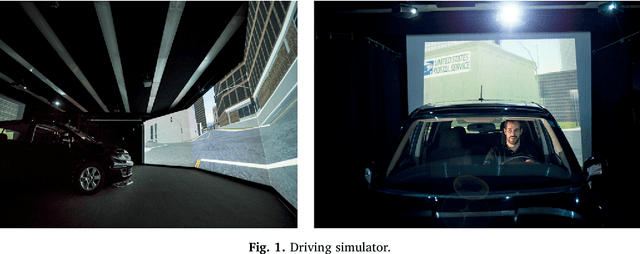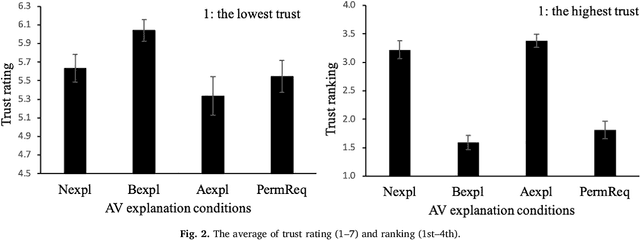Look Who's Talking Now: Implications of AV's Explanations on Driver's Trust, AV Preference, Anxiety and Mental Workload
Paper and Code
May 21, 2019



Explanations given by automation are often used to promote automation adoption. However, it remains unclear whether explanations promote acceptance of automated vehicles (AVs). In this study, we conducted a within-subject experiment in a driving simulator with 32 participants, using four different conditions. The four conditions included: (1) no explanation, (2) explanation given before or (3) after the AV acted and (4) the option for the driver to approve or disapprove the AV's action after hearing the explanation. We examined four AV outcomes: trust, preference for AV, anxiety and mental workload. Results suggest that explanations provided before an AV acted were associated with higher trust in and preference for the AV, but there was no difference in anxiety and workload. These results have important implications for the adoption of AVs.
 Add to Chrome
Add to Chrome Add to Firefox
Add to Firefox Add to Edge
Add to Edge